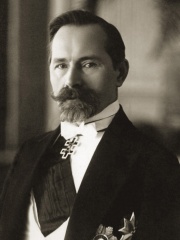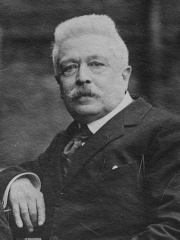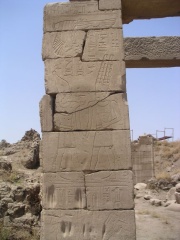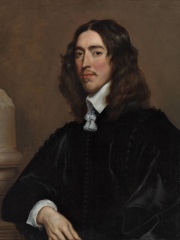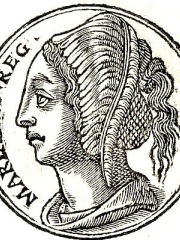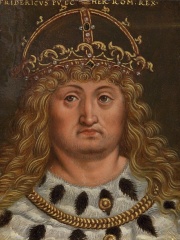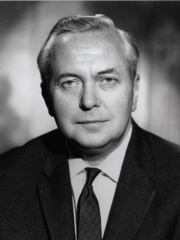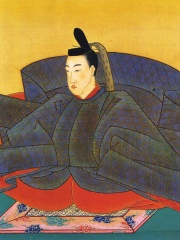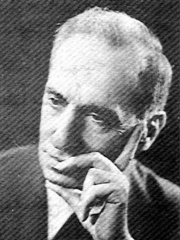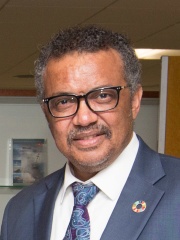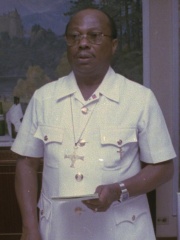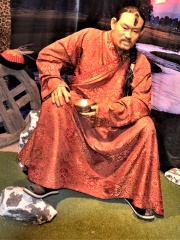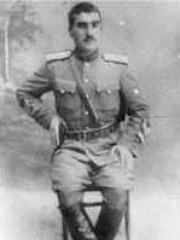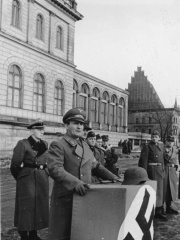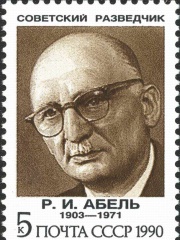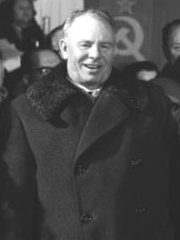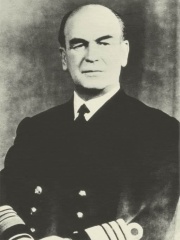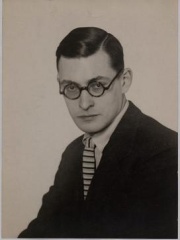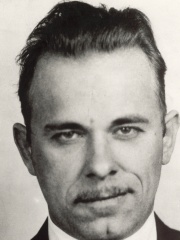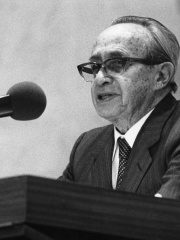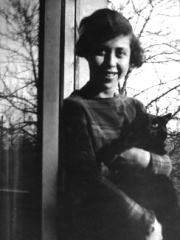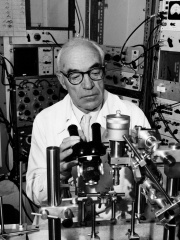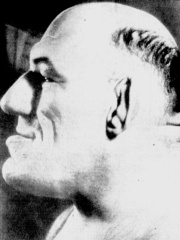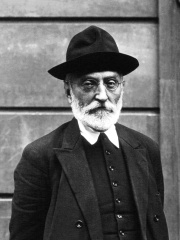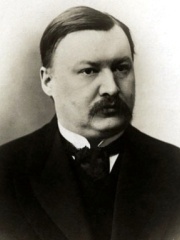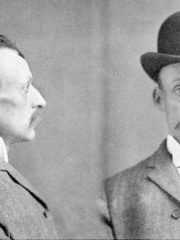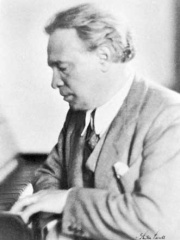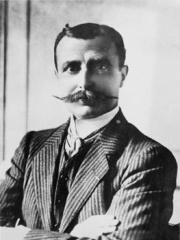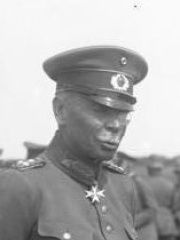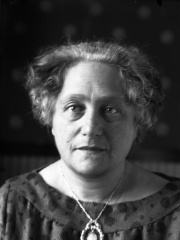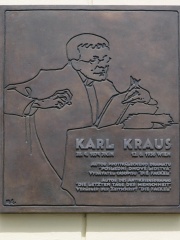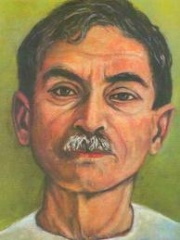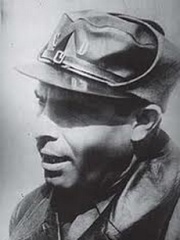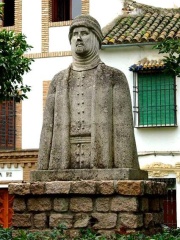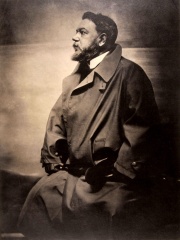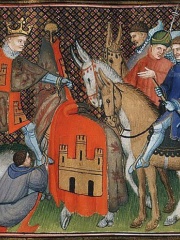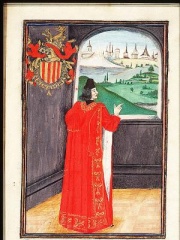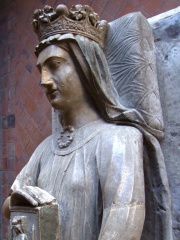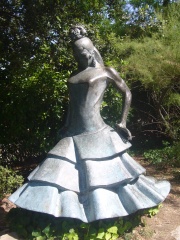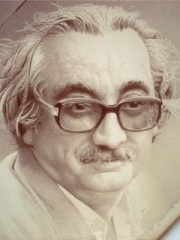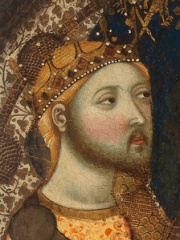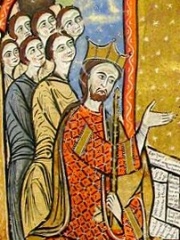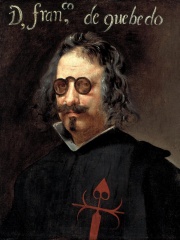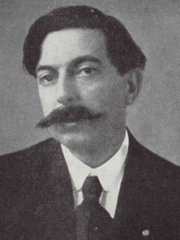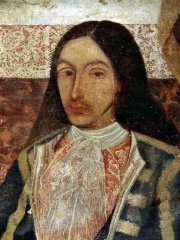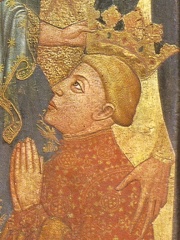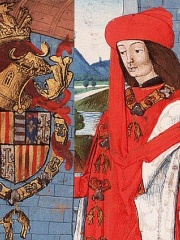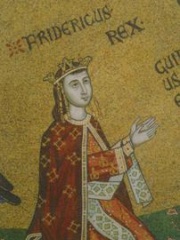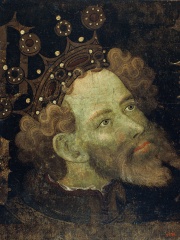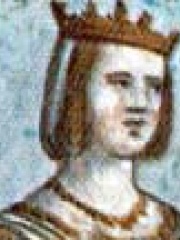POLITICIAN
José Antonio Primo de Rivera
1903 - 1936
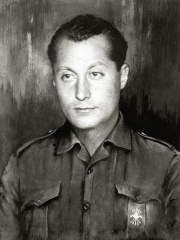
 José Antonio Primo de Rivera
José Antonio Primo de Rivera
José Antonio Primo de Rivera y Sáenz de Heredia, 1st Duke of Primo de Rivera, 3rd Marquis of Estella GE (24 April 1903 – 20 November 1936), often referred to simply as José Antonio, was a Spanish national syndicalist politician who founded the Falange Española ("Spanish Phalanx"), later Falange Española de las JONS. José Antonio was the eldest son of General Miguel Primo de Rivera (2nd Marquess of Estella), who governed Spain as dictator from 1923 to 1930. He worked as a lawyer from 1927 to 1933 before entering politics through the National Monarchist Union, an enterprise he initially engaged in because of his vows to defend his recently deceased father's memory. After becoming disillusioned with the traditionalist monarchist policies, he founded the short lived Movimiento Español Sindicalista alongside Julio Ruiz de Alda. Read more on Wikipedia
His biography is available in 46 different languages on Wikipedia. José Antonio Primo de Rivera is the 2,290th most popular politician (down from 1,870th in 2024), the 171st most popular biography from Spain (down from 153rd in 2019) and the 56th most popular Spanish Politician.
José Antonio Primo de Rivera was a Spanish politician and military officer who founded the Falange Española, the political party that supported the dictatorship of General Francisco Franco.
Memorability Metrics
Page views of José Antonio Primo de Rivera by language
Among POLITICIANS
Among politicians, José Antonio Primo de Rivera ranks 2,290 out of 19,576. Before him are Antanas Smetona, Vittorio Emanuele Orlando, Psamtik III, Johan de Witt, Mariamne I, and Frederick the Fair. After him are Harold Wilson, Emperor Momozono, Michel Aflaq, Tedros Adhanom, William Tolbert, and Jamukha.
Most Popular Politicians in Wikipedia
Go to all RankingsAntanas Smetona
1874 - 1944
HPI: 71.44
Rank: 2,285
Vittorio Emanuele Orlando
1860 - 1952
HPI: 71.44
Rank: 2,286
Psamtik III
590 BC - 525 BC
HPI: 71.44
Rank: 2,287
Johan de Witt
1625 - 1672
HPI: 71.44
Rank: 2,288
Mariamne I
54 BC - 29 BC
HPI: 71.42
Rank: 2,289
Frederick the Fair
1289 - 1330
HPI: 71.42
Rank: 2,290
José Antonio Primo de Rivera
1903 - 1936
HPI: 71.42
Rank: 2,291
Harold Wilson
1916 - 1995
HPI: 71.42
Rank: 2,292
Emperor Momozono
1741 - 1762
HPI: 71.42
Rank: 2,293
Michel Aflaq
1910 - 1989
HPI: 71.42
Rank: 2,294
Tedros Adhanom
1965 - Present
HPI: 71.41
Rank: 2,295
William Tolbert
1913 - 1980
HPI: 71.41
Rank: 2,296
Jamukha
1162 - 1205
HPI: 71.41
Rank: 2,297
Contemporaries
Among people born in 1903, José Antonio Primo de Rivera ranks 32. Before him are Anaïs Nin, Mustafa Barzani, Karl Hanke, Rudolf Abel, Nikolai Podgorny, and Fahri Korutürk. After him are Raymond Queneau, John Dillinger, Hans Jonas, Irène Némirovsky, John Eccles, and The French Angel. Among people deceased in 1936, José Antonio Primo de Rivera ranks 24. Before him are Miguel de Unamuno, Alexander Glazunov, G. K. Chesterton, Albert Fish, Ottorino Respighi, and Louis Blériot. After him are Hans von Seeckt, Elsa Einstein, Karl Kraus, Premchand, Buenaventura Durruti, and Andrija Mohorovičić.
Others Born in 1903
Go to all RankingsAnaïs Nin
WRITER
1903 - 1977
HPI: 72.16
Rank: 26
Mustafa Barzani
SOCIAL ACTIVIST
1903 - 1979
HPI: 72.05
Rank: 27
Karl Hanke
POLITICIAN
1903 - 1945
HPI: 71.81
Rank: 28
Rudolf Abel
MILITARY PERSONNEL
1903 - 1971
HPI: 71.75
Rank: 29
Nikolai Podgorny
POLITICIAN
1903 - 1983
HPI: 71.61
Rank: 30
Fahri Korutürk
POLITICIAN
1903 - 1987
HPI: 71.58
Rank: 31
José Antonio Primo de Rivera
POLITICIAN
1903 - 1936
HPI: 71.42
Rank: 32
Raymond Queneau
WRITER
1903 - 1976
HPI: 71.41
Rank: 33
John Dillinger
MAFIOSO
1903 - 1934
HPI: 71.17
Rank: 34
Hans Jonas
PHILOSOPHER
1903 - 1993
HPI: 71.09
Rank: 35
Irène Némirovsky
WRITER
1903 - 1942
HPI: 71.09
Rank: 36
John Eccles
PHYSICIAN
1903 - 1997
HPI: 70.57
Rank: 37
The French Angel
WRESTLER
1903 - 1954
HPI: 70.40
Rank: 38
Others Deceased in 1936
Go to all RankingsMiguel de Unamuno
PHILOSOPHER
1864 - 1936
HPI: 73.57
Rank: 18
Alexander Glazunov
MUSICIAN
1865 - 1936
HPI: 73.23
Rank: 19
G. K. Chesterton
WRITER
1874 - 1936
HPI: 72.44
Rank: 20
Albert Fish
EXTREMIST
1870 - 1936
HPI: 72.34
Rank: 21
Ottorino Respighi
COMPOSER
1879 - 1936
HPI: 71.47
Rank: 22
Louis Blériot
INVENTOR
1872 - 1936
HPI: 71.46
Rank: 23
José Antonio Primo de Rivera
POLITICIAN
1903 - 1936
HPI: 71.42
Rank: 24
Hans von Seeckt
MILITARY PERSONNEL
1866 - 1936
HPI: 71.32
Rank: 25
Elsa Einstein
POLITICIAN
1876 - 1936
HPI: 71.21
Rank: 26
Karl Kraus
WRITER
1874 - 1936
HPI: 71.03
Rank: 27
Premchand
WRITER
1880 - 1936
HPI: 70.83
Rank: 28
Buenaventura Durruti
SOCIAL ACTIVIST
1896 - 1936
HPI: 70.70
Rank: 29
Andrija Mohorovičić
GEOLOGIST
1857 - 1936
HPI: 70.67
Rank: 30
In Spain
Among people born in Spain, José Antonio Primo de Rivera ranks 171 out of 3,355. Before him are Al-Hakam II (915), Joaquín Sorolla (1863), Alfonso XI of Castile (1311), John II of Aragon (1398), Berengaria of Navarre (1165), and Carmen Amaya (1913). After him are Joan Fuster (1922), Henry II of Castile (1334), Enrique Iglesias (1975), Alfonso II of Aragon (1157), Francisco de Quevedo (1584), and Enrique Granados (1867).
Others born in Spain
Go to all RankingsAl-Hakam II
POLITICIAN
915 - 976
HPI: 71.73
Rank: 165
Joaquín Sorolla
PAINTER
1863 - 1923
HPI: 71.73
Rank: 166
Alfonso XI of Castile
POLITICIAN
1311 - 1350
HPI: 71.64
Rank: 167
John II of Aragon
POLITICIAN
1398 - 1479
HPI: 71.63
Rank: 168
Berengaria of Navarre
COMPANION
1165 - 1230
HPI: 71.53
Rank: 169
Carmen Amaya
ACTOR
1913 - 1963
HPI: 71.50
Rank: 170
José Antonio Primo de Rivera
POLITICIAN
1903 - 1936
HPI: 71.42
Rank: 171
Joan Fuster
WRITER
1922 - 1992
HPI: 71.38
Rank: 172
Henry II of Castile
POLITICIAN
1334 - 1379
HPI: 71.37
Rank: 173
Enrique Iglesias
SINGER
1975 - Present
HPI: 71.35
Rank: 174
Alfonso II of Aragon
POLITICIAN
1157 - 1196
HPI: 71.35
Rank: 175
Francisco de Quevedo
WRITER
1584 - 1645
HPI: 71.34
Rank: 176
Enrique Granados
COMPOSER
1867 - 1916
HPI: 71.33
Rank: 177
Among POLITICIANS In Spain
Among politicians born in Spain, José Antonio Primo de Rivera ranks 56. Before him are Amaro Pargo (1678), Ferdinand I of Aragon (1380), Ferdinand I of Naples (1423), Al-Hakam II (915), Alfonso XI of Castile (1311), and John II of Aragon (1398). After him are Henry II of Castile (1334), Alfonso II of Aragon (1157), Abd al-Rahman II (788), Frederick III of Sicily (1272), Peter IV of Aragon (1319), and Eleanor of Navarre (1426).
Amaro Pargo
1678 - 1747
HPI: 71.96
Rank: 50
Ferdinand I of Aragon
1380 - 1416
HPI: 71.91
Rank: 51
Ferdinand I of Naples
1423 - 1494
HPI: 71.86
Rank: 52
Al-Hakam II
915 - 976
HPI: 71.73
Rank: 53
Alfonso XI of Castile
1311 - 1350
HPI: 71.64
Rank: 54
John II of Aragon
1398 - 1479
HPI: 71.63
Rank: 55
José Antonio Primo de Rivera
1903 - 1936
HPI: 71.42
Rank: 56
Henry II of Castile
1334 - 1379
HPI: 71.37
Rank: 57
Alfonso II of Aragon
1157 - 1196
HPI: 71.35
Rank: 58
Abd al-Rahman II
788 - 852
HPI: 71.27
Rank: 59
Frederick III of Sicily
1272 - 1337
HPI: 71.24
Rank: 60
Peter IV of Aragon
1319 - 1387
HPI: 71.17
Rank: 61
Eleanor of Navarre
1426 - 1479
HPI: 71.07
Rank: 62
